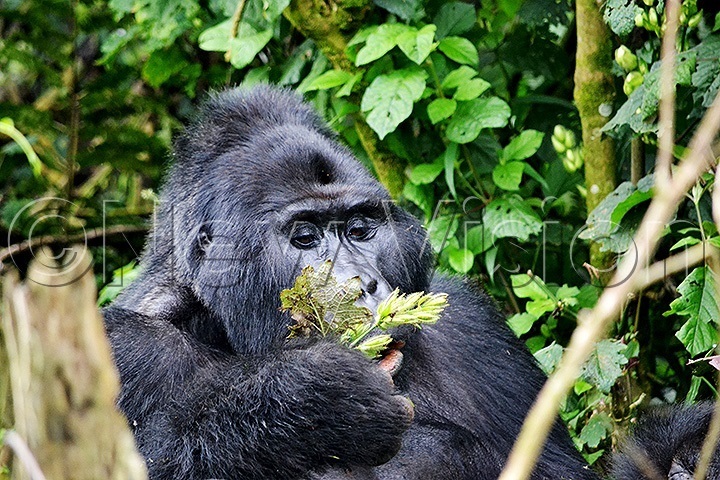Rafiki left a leadership vacuum
The sad news of Rafiki’s death at a tender age of 25years hit me like Golola kick below the belt. I dread the idea of trackers missing to see him in deep thought, holding his chin like a polygamist planning for his eight wives.
WILDLIFE
Gorilla tracking in Uganda costs East Africans $70 (sh260,837) and others $700 (sh2.6m) to spend 60 minutes with a group of the globally sought-after Mountain gorillas.
The same adventure costs $1500 (sh5.5m) in Rwanda. The other option is DR of Congo which takes guts of steel, given the civil unrest there.
So, the recent death of a Silverback Rafiki, 25, brings back vivid memories of my adventures in Bwindi Impenetrable Forest. I was invited by the Uganda Tourism Board (UTB) during a Pearl Of Africa Tourism Expo (POATE) in February 2018.
One of the activities was gorilla tracking familiarization in Bwindi Impenetrable Forest. We boarded an Aerolink six sitter at Entebbe International Airport.
In the cockpit was Tina Drazu exuding a lot of confidence. She ran her fingers on the yoke (steering wheel) and dashboard buttons with expertise.
"In the control is Jeff and me your Flight Captain Tina Drazu," she coed softly. "The flight is going to take us between 45-60 minutes. Make yourself comfortable with water and bananas in a box behind. It is self-service. Expect pockets of air turbulence. We may lose height."
While in Bwindi, we were briefed about meeting our long-awaited hosts the Rushegura group of gorillas with Rafiki their leader. Photographers could shoot but strictly no flashlights. We were not allowed to eat in the vicinity of the gorillas.
"Because the curious gorillas might want a share of your burger, Rolex, or soft drink," cautioned UWA guide Wilber Tibesigwa. "And in the process sharing what you are eating Rafiki, the Silverback might mistake your movements for intensions to abduct a family member. What follows is a heavy blow, on your head which is similar to being hit with a bag weighing 50kg!"
We were led down steep cliffs, through thorny thickets and muddy grounds following the group's footsteps. The guides kept communicating to share tips of the location of our hosts (the gorillas) who move freely in search of food and water under the leadership of Rafiki. He protects them against predators and other groups contesting for space and any danger from intruders.

The sad news of Rafiki's death at a tender age of 25years hit me like Golola kick below the belt. I dread the idea of trackers missing to see him in deep thought, holding his chin like a polygamist planning for his eight wives.
I gasp for breath imagining the pain the caring Rafiki felt when the spear, according to a press release from Uganda Wildlife Authority (UWA) penetrated its left upper part of the abdomen up to the internal organs.
Talking to the UWA spokesman Gessa Simplicious was a revelation of the status quo after Rafiki's death. The mood among the surviving family of Rafiki is visibly sad. They have started eating but not as much as they used to in his presence.
"There is a leadership vacuum currently. Experts say another gorilla which is not habituated might inherit the family," says Gessa. "Good if that happens it is easier to habituate it because all the others are already transformed. Generally, it is the jungle dynamics dictating the survival of Rafiki's family."